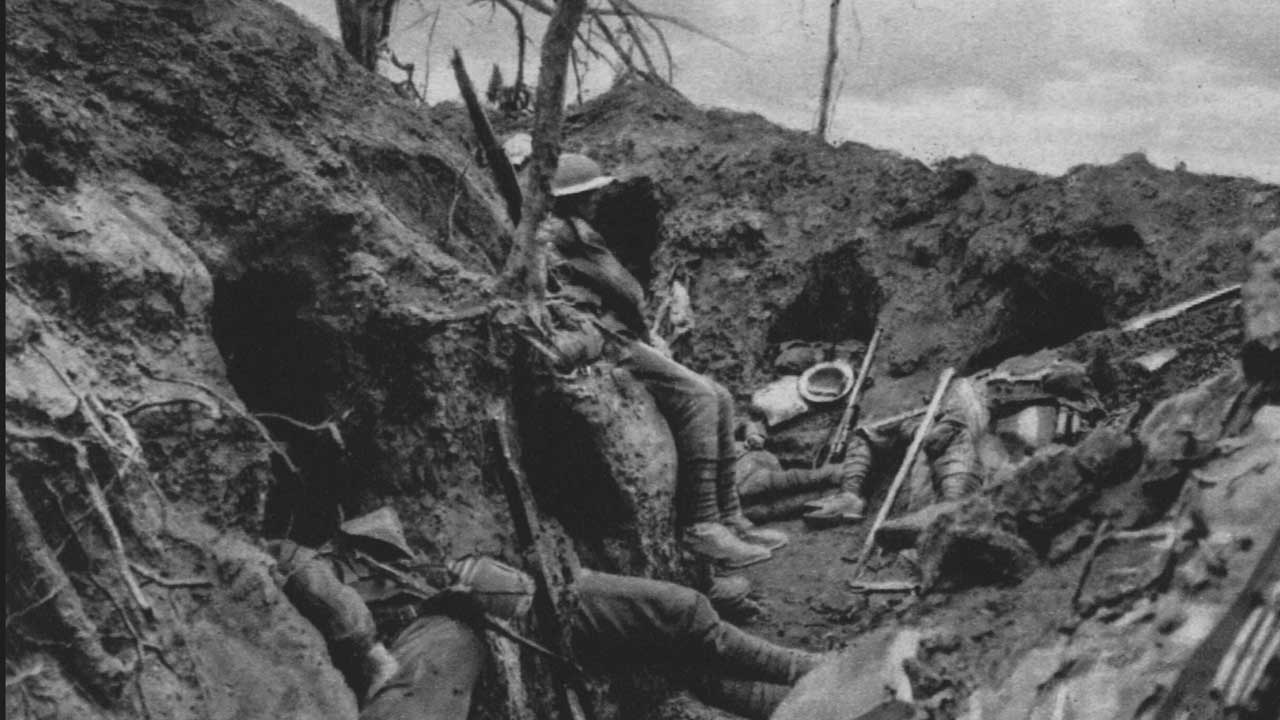100 Years ago this week, World War I began. The beginning of the war illustrated both the complete failure of diplomacy and the epitome of inflexible planning. By its end, over 16 million were dead, and the world invented a new language to describe the horrors of what seemed surely “The War to End All War”.

Thiepval 1916
AJP Taylor has argued convincingly that none of the great powers actively sought war, yet all were convinced that rapid mobilization would be a deterrent to actual war and would result in bloodless victory for their respective causes. The General Staffs engineered ever more complex timetables to mobilize more rapidly than their rivals could. In the end, the timetables were seen as plans that had to be adhered to rigidly. No one dared back down from their “plan” lest they court defeat at the hands of the enemy (even where the “enemy” turned out to be different from the one in the plan).
On July 28th, 1914, Austria-Hungary declared war on Serbia. A series of treaties, alliances, and mutual defence pacts clicked into place one after another. Russia mobilized, Germany mobilized, and on the evening of August 3rd, Lord Grey observed “The lamps are going out all over Europe, we shall not see them lit again in our life-time”. On August 4th, Britain declared war on Germany.
In 2005 I visited the Thiepval Memorial some 20km south of Arras in France. Thiepval is a memorial to the missing of the Battle of the Somme. This battle began in July 1916 and was a primarily British offensive intended as a battle of attrition with the objective of removing pressure on the French at Verdun. Over the next 4 months, the attackers advanced about 10km. Casualties were more than a million.
The walls of the the Thiepval Memorial record the names of more than 72,000 Commonwealth soldiers with no known grave. It is safe to assume a similar number of missing Germans. I was with my son, and we spent a couple of hours walking around the grounds and quietly reflecting on the place and how one could possible consider its meaning.

Thiepval 2005
Pause for a moment and consider. This is a memorial to the missing…, not the dead.., not the wounded. There are a few crosses out front but this is a later addition. There are graveyards throughout this part of France, but this memorial exists solely to name and remember the missing.
A soldier disappeared during a shelling, or perhaps just slipped into the ooze at the bottom of a trench. In places like Saskatchewan or Australia or the north of England a notice was eventually received that simply said…, we have no idea what happened to your child. We have no idea where his body might be, and we certainly have no idea what happened to him. We can however tell you that you can be sure your child is not coming home.
Thiepval is staggering to see.
If you have never been there, this area of France is one of the most beautiful places you could ever imagine. Quiet farmland echoes with the sounds of birds, and the wind whispers through the trees. Small farms and villages dot the landscape. During World War I this was a broken moonscape of blood soaked mud. To this day, some parts of the landscape remain off limits because of hundred-year-old unexploded ordinance that lays beneath the lush green grass. A walk through a farmyard will reveal the clear traces of the trenches which once extinguished the lives of so many young men.
It would be nice to believe that modern political leaders are more skilled…, more cautious…, and less prone to hubris and jingoism. There is little evidence to support that belief.





